Synopsis
Laverne Antrobus examines foetal-maternal conflict, an idea sometimes blamed for behavioural and psychological disorders such as Tourettes, depression and autism.
- Programme: Growing Babies
- Episode: 1: War in the Womb
- Channel: BBC Four
- Broadcast year: 2008
- Education & Childcare
Licence: ERA Licence required
UK only
Staff and students of licensed education establishments only
Cannot be adapted
Add Notes
More clips from Growing Babies

From Embryo to Foetus | Growing Babies
From Embryo to Foetus | Growing Babies
(Contains graphic medical images) Showing the growth of the embryo into the foetus, from five weeks to nine weeks.

Three Weeks Since Conception | Growing Babies
Three Weeks Since Conception | Growing Babies
(Contains graphic medical images) Time-lapse showing how, three weeks from conception, the embryo starts to take shape.

From Embryo to Foetus | Growing Babies
From Embryo to Foetus | Growing Babies
(Contains graphic medical images) Showing the growth of the embryo into the foetus, from five weeks to nine weeks.

Three Weeks Since Conception | Growing Babies
Three Weeks Since Conception | Growing Babies
(Contains graphic medical images) Time-lapse showing how, three weeks from conception, the embryo starts to take shape.

From Embryo to Foetus | Growing Babies
From Embryo to Foetus | Growing Babies
(Contains graphic medical images) Showing the growth of the embryo into the foetus, from five weeks to nine weeks.

Three Weeks Since Conception | Growing Babies
Three Weeks Since Conception | Growing Babies
(Contains graphic medical images) Time-lapse showing how, three weeks from conception, the embryo starts to take shape.

From Embryo to Foetus | Growing Babies
From Embryo to Foetus | Growing Babies
(Contains graphic medical images) Showing the growth of the embryo into the foetus, from five weeks to nine weeks.

Three Weeks Since Conception | Growing Babies
Three Weeks Since Conception | Growing Babies
(Contains graphic medical images) Time-lapse showing how, three weeks from conception, the embryo starts to take shape.
More resources about Education and Childcare

02: Ice Babies | A Child Against All Odds
02: Ice Babies | A Child Against All Odds
Freezing embryos offers hope to people faced with being unable to have children of their own.

03: Take My Baby | Louis Theroux: Altered States
03: Take My Baby | Louis Theroux: Altered States
Louis Theroux explores open adoption in California, where women hand over their babies at birth to adoptive families paying ...

1: What Are You Hoping For? | Baby Monthly
1: What Are You Hoping For? | Baby Monthly
Introd prog to series in which 5 mothers & their partners,whose babies were born at end 1993,hve made video diaries of the 1st 12 ...

10: Twelfth Month | Baby Monthly
10: Twelfth Month | Baby Monthly
Series documenting babies'development.How much of their first year can babies remember?How well developed are their powers of reasoning?Baby...

2: The Diaries Begin | Baby Monthly
2: The Diaries Begin | Baby Monthly
Prog in which 5 mothers & their partners,whose babies where born at end 1993, have made video diaries of the 1st 12 months of family life.

3: The First Month | Baby Monthly
3: The First Month | Baby Monthly
Series follows 5 families whose babies born at end of 1993;The families see the world thru a baby's eyes as they find out about babies sigh...

4: The Second Month | Baby Monthly
4: The Second Month | Baby Monthly
Series which follows the progress of 5 families & their babies of the first 12 months of life. At 6 weeks babies reach a peak of crying & ...

5: The Third Month | Baby Monthly
5: The Third Month | Baby Monthly
3rd monthly prog in series which follows families of 5 babies born at the end of 1993. Compares breast & bottle feeding, looks at IQ testin...

6: The Fourth Month | Baby Monthly
6: The Fourth Month | Baby Monthly
4th monthly prog in series which follows families of 5 babies born at the end of 1993. Today shws the importance of universal baby games i...

7: The Fifth Month | Baby Monthly
7: The Fifth Month | Baby Monthly
Series details the month by month progress of 5 young babies born at the end of 1993.Most are now sitting up & cutting teeth whilst display...

8: The Seventh Month | Baby Monthly
8: The Seventh Month | Baby Monthly
Series details mth by mth progress of 5 young babies. Prog lks at why babies play; what sort of toys shd buy; why boys & girls behave dif...

A baby's nervous system | Teaching Today
A baby's nervous system | Teaching Today
A description of how babies nervous systems grow with them.
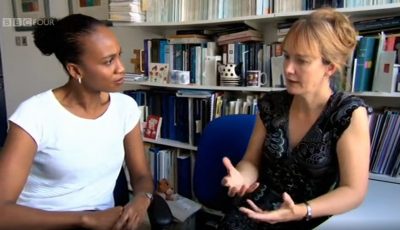
Anger and frustration in autism | Growing Children
Anger and frustration in autism | Growing Children
Laverne meets a young boy whose level of autism means he can function in ''neuro-typical'' situations but this isn't witho...

Attitudes towards misbehaving children | The British Family
Attitudes towards misbehaving children | The British Family
In the 1990s children and teenagers started to become feared, but if it was the fault of the children, the parent...
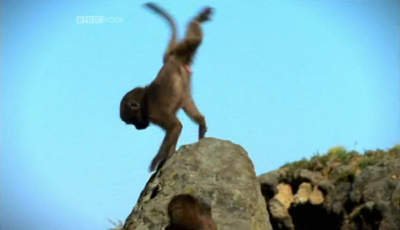
Babies and ''Natural Geometry'' | Growing Babies
Babies and ''Natural Geometry'' | Growing Babies
Babies are also believed to be born with an innate sense of the space around them.
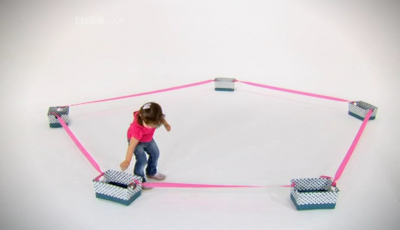
Babies and biased learning | Growing Babies
Babies and biased learning | Growing Babies
Babies rely on signalling from others and will often be shown where to look by adults.

Babies and counting | Baby Monthly
Babies and counting | Baby Monthly
It is debatable whether babies around five months can "count", but it can be agreed there is an awareness of the concepts of increase or d...
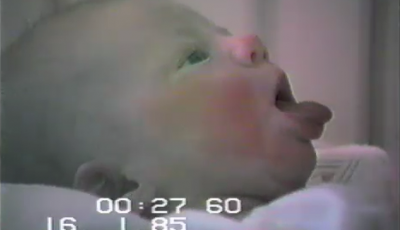
Babies and imitating | Baby Monthly
Babies and imitating | Baby Monthly
While it used to be believed that babies were born with a "blank slate" it now can be seen that imitation is an innate skill, meaning the...
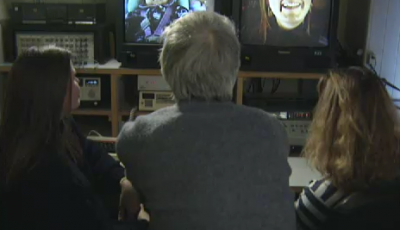
Babies and proto-conversation | Baby Monthly
Babies and proto-conversation | Baby Monthly
Two mothers do an experiment with their babies where they alternate being passive and involved, which showed the babies trying t...
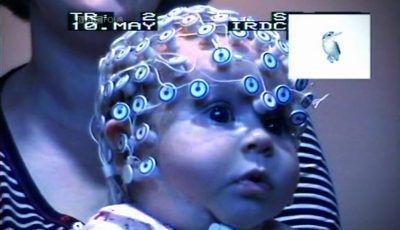
Babies and the Visual Cortex | Growing Babies
Babies and the Visual Cortex | Growing Babies
Despite having no knowledge of certain species, babies can still determine the difference between the examples of a bird and a ...
